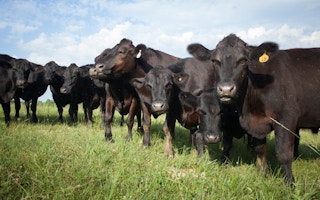What is going on?
We’ve come a long way in becoming more mindful of our surroundings and our planet. Many of us recycle, reuse, buy less and actively look for alternative ways to nurture sustainability-orientated lifestyles. However, the more advice we hear on “sustainable” and “climate-friendly” lifestyles, the more we get confused about what ought to be done. So, what is the most meaningful action we can take as individuals to help fight climate change?
Well, the message from scientists is clear, we need to rethink what we put on our plates. Research from Oxford states that “Greenhouse gas (GHG) emissions cannot be sufficiently mitigated without dietary changes towards more plant-based diets”, and the major culprit being (you guessed it) the meat and dairy industries.
There appears to be a rather straight-forward solution to a big problem. So why aren’t governments and businesses talking about dietary change as a partial solution to the climate crisis? Because agriculture is a highly political topic with subsidies, lobbyists, and conflicts of interests around every corner. Once again, we are left with no choice but to take the matter into our own hands (and plates). Best to do this with some empirical data to guide us along the way!
What does the data tells us?
Data on the food production industry is startling. Leaving methane produced by cows aside, an estimated 77 per cent of all agricultural land is used for the production of meat and dairy, almost one third of the world’s fresh water is used for animal products, and only 7 per cent of all soy is used for directly consumed by humans. As if that wasn’t enough, we also throw away over one third of all edible food. The consequence of these “inefficiencies” is that agriculture, forestry, and land account for 18.4 per cent of all global GHG emissions.
The growth in general income levels and the global population is said to lead to a projected 87 per cent increase in GHG emissions through the food system alone! However, the simple behavioural change of committing to a flexitarian diet (i.e. switching to a meatless meal when possible) lowers this GHG projection by over half. The math here is simple, we should consume less products with a high-environmental impact. So, forget ‘Meat-Free Mondays’, what we need is ‘Meat-Only Mondays’ to bring about change!
What can you do?
We get it, food is personal. Eating goes beyond just obtaining nutrients for our body, it is a ritual, often a social event, and for many of us a highlight of the day. Removing a beef company linked to deforestation from our portfolios is often easier than removing it from our dinner plates. And since we all need a bit of motivation along the way, we recommend watching “Eating Our Way to Extinction”, a recent documentary debunking some of the myths around plant-based diets and the climate crisis.
Which are your favourite vegan chicken strips?


















